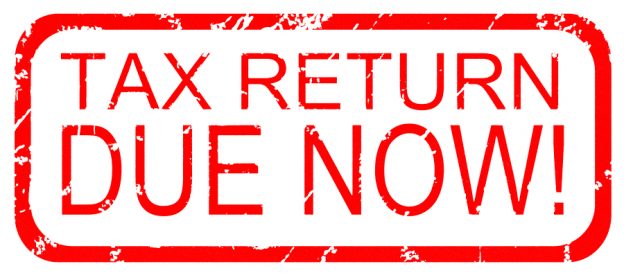
HMRC and other financial experts are ringing the alarm bell on the 2017/2018 self assessment tax return deadline. This is for the 5,542,000 taxpayers that have not yet submitted their tax return and are into the final month before the January 31st 2019 deadline. The automatic, immediate £100 fine is the first consequence of missing this deadline.
HMRC estimate that a total of over 11million people will send a self assessment tax return for the 2017-18 financial year.
How does it work?
Most employee salaries, pension payments and savings have income tax taken at the source as part of an automatic process. The taxpayer doesn’t need to do anything, apart from check their tax code and monitor their tax position if their circumstances change. The self assessment system is for businesses and individual taxpayers to pay their income tax when they are not in an employed, PAYE situation. For example, those that are self employed or earn other income that has not already been taxed.
Is there a fine for missing the self assessment tax return deadline?
Yes, there is an immediate £100 fine for missing the SA deadline and then they keep accumulating until you file your tax return. The maximum fine is 100% of your tax bill, just for missing the deadline. Then there are another list of penalties for not paying your tax bill on time.
As HMRC’s director general, Angela MacDonald, said: “The self assessment deadline on 31 January is fast approaching but there is still time for customers to file their tax returns online and on time to avoid any unnecessary penalties. If you are completing Self Assessment for the first time or are yet to start your 2017/18 tax return, there is a wide range of support and guidance available on GOV.UK to help at every stage of the tax return process.”
Fine structure:
Deadline missed: automatic £100, regardless of whether or not you owe any tax
Three months after the deadline: £10 daily, up to £900
Six months after the deadline: 5% of your tax bill or £300 (the highest amount of these two)
Twelve months after the deadline: £300 or 5% of your tax bill, whichever is higher
How do I know if I have to pay through self assessment?
There are a variety of circumstances that mean you have to pay tax through the self assessment process. These apply even if you also pay income tax through the PAYE system as an employee. For example, if you are both employed and self employed.
You must use the self assessment system if you are in any of these positions:
- Child benefit: you are paid child benefit and you, or your partner, earn over £50,000
- Work expenses: you get over £2,500 in work expenses, as an employee
- Rent: you make more than £2,500 from renting property
- Overseas earnings: money you earned abroad that has not yet been subject to UK tax
- Business: you are a shareholder, limited company director or self employed sole trader
- Tips and commission: you earn more than £2,500 this way
- £100,000 income: you make more than £100,000 a year
If any of this sounds like your position in 2017-18, you need to act fast to make sure that you meet HMRC’s 31st January deadline. As the financial secretary to the Treasury, Mel Stride, said: “It is encouraging that around 52% of taxpayers have already completed their self assessment tax returns. With less than one month to go before the deadline, there are still many people that need to act now.” Don’t waste your money on unnecessary fines. You still have time to get through the process, just don’t leave it a day longer, particularly if this is your first year filing a tax return.







